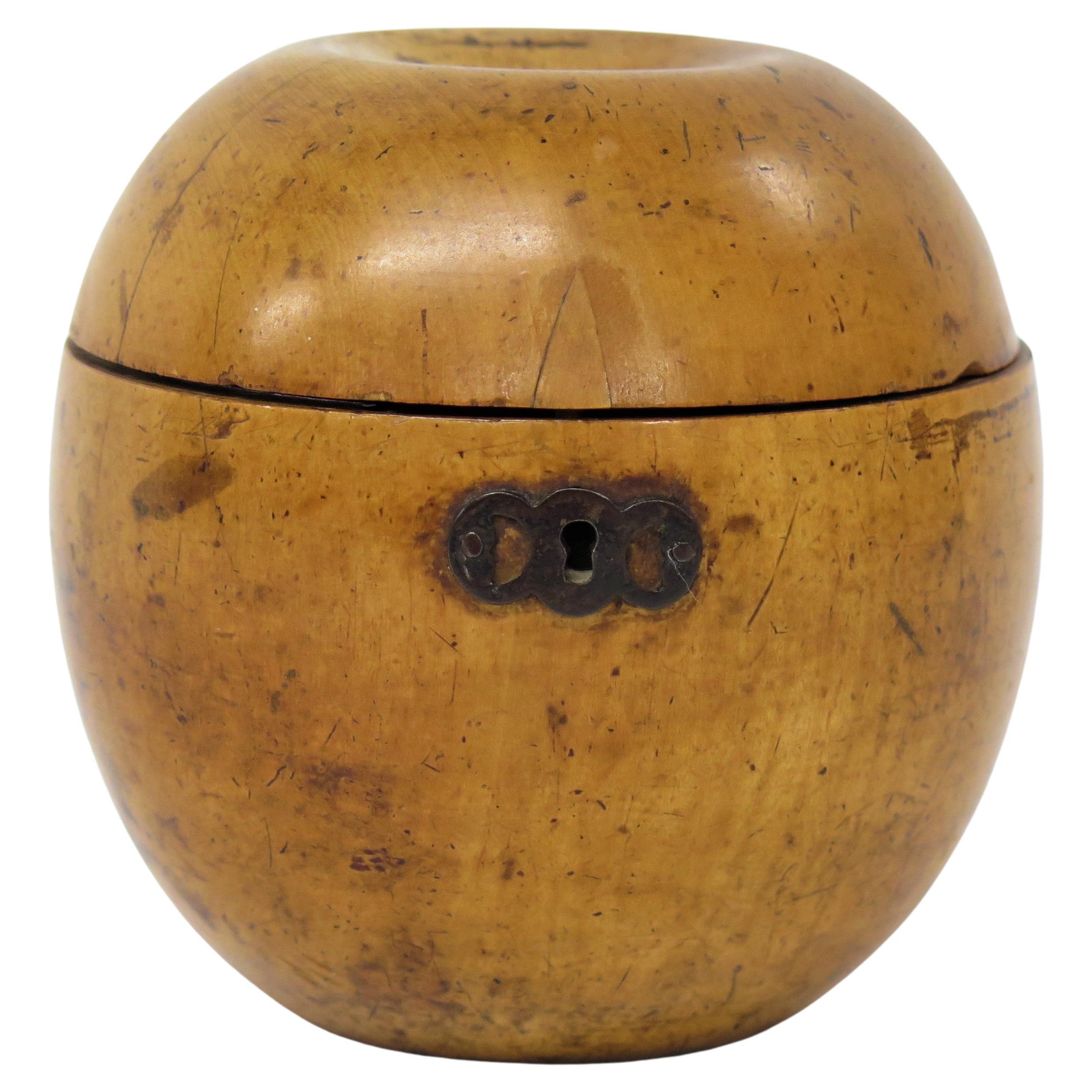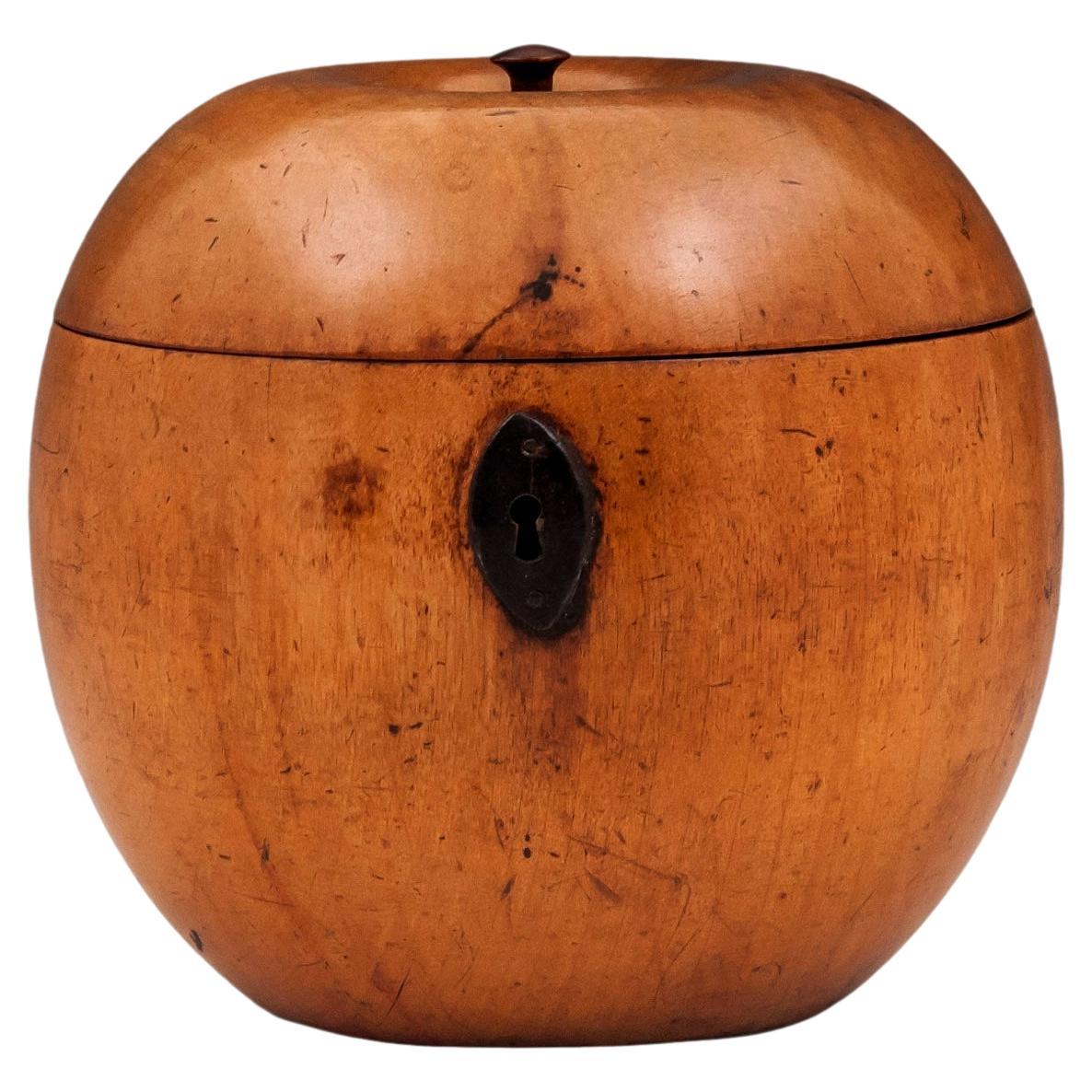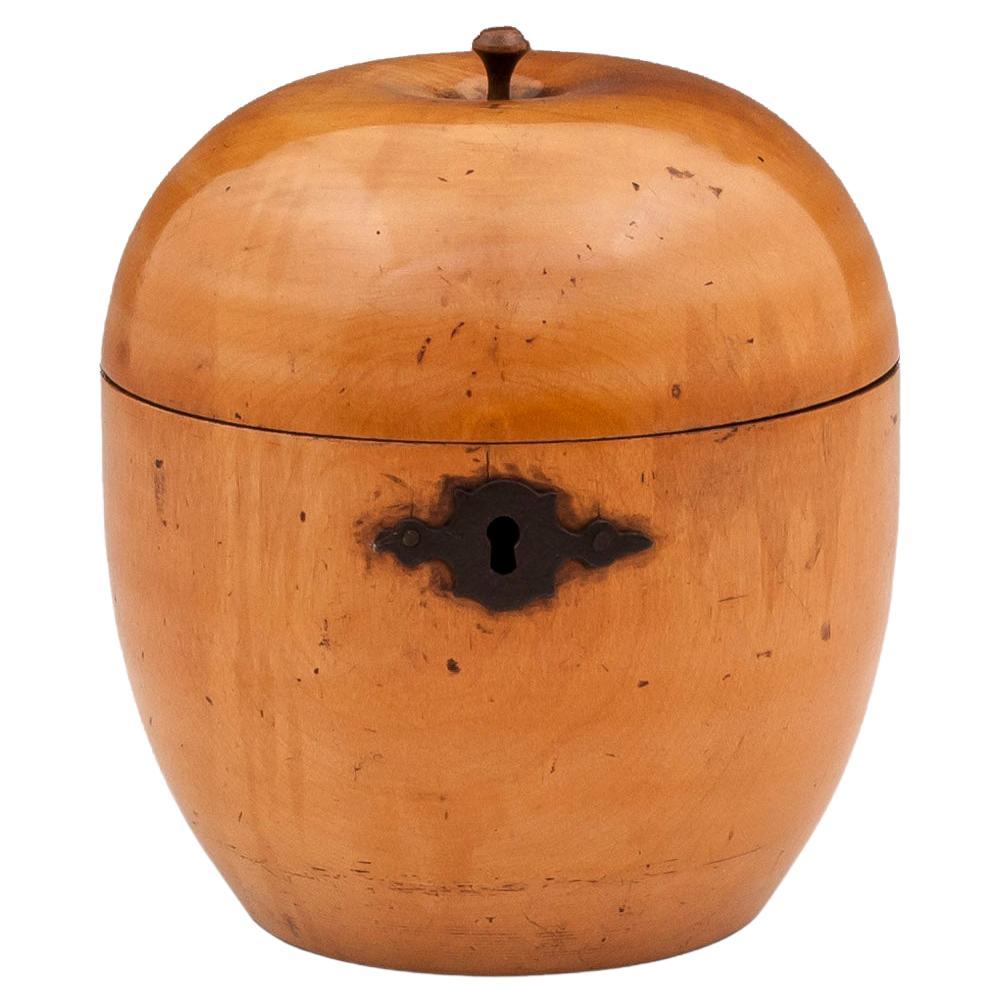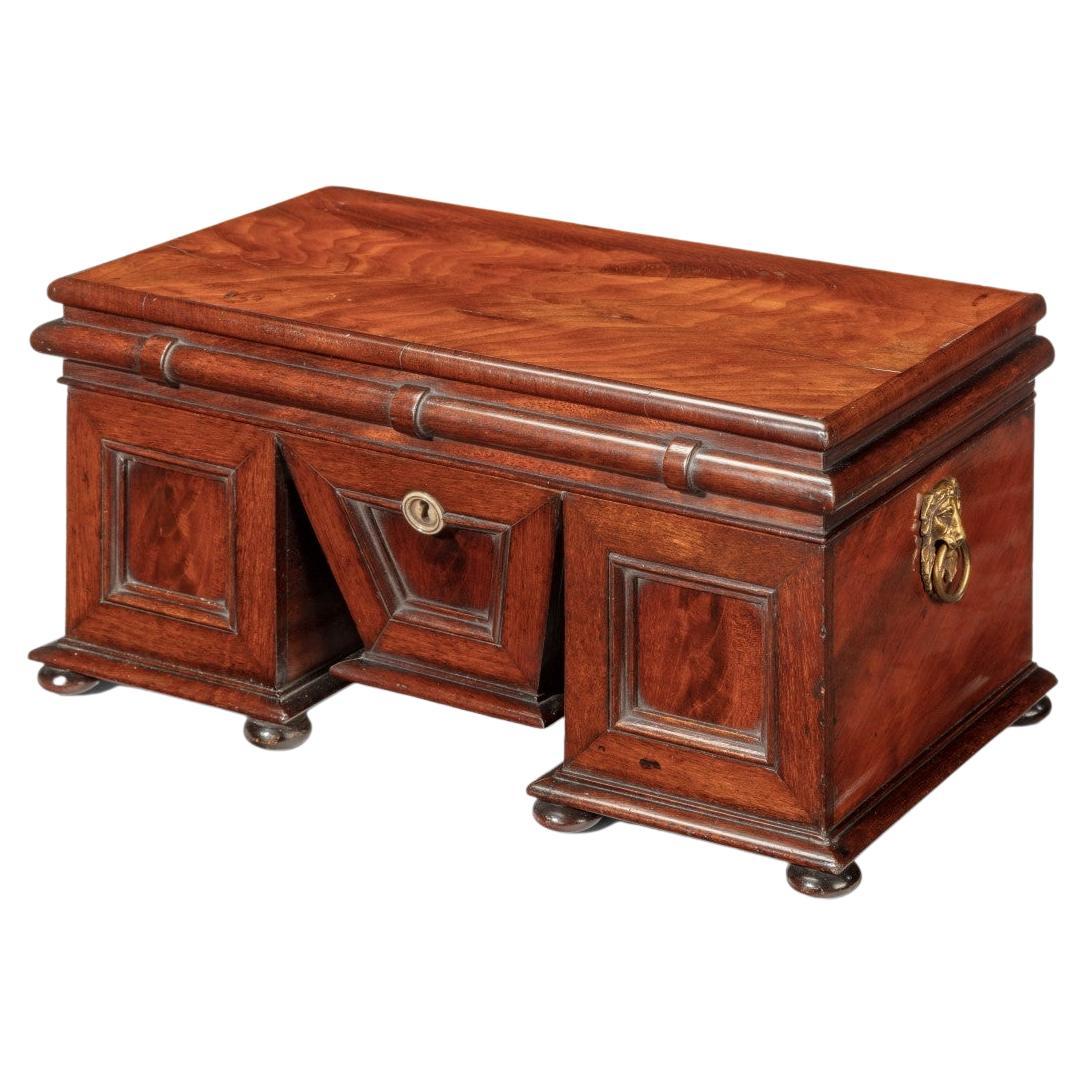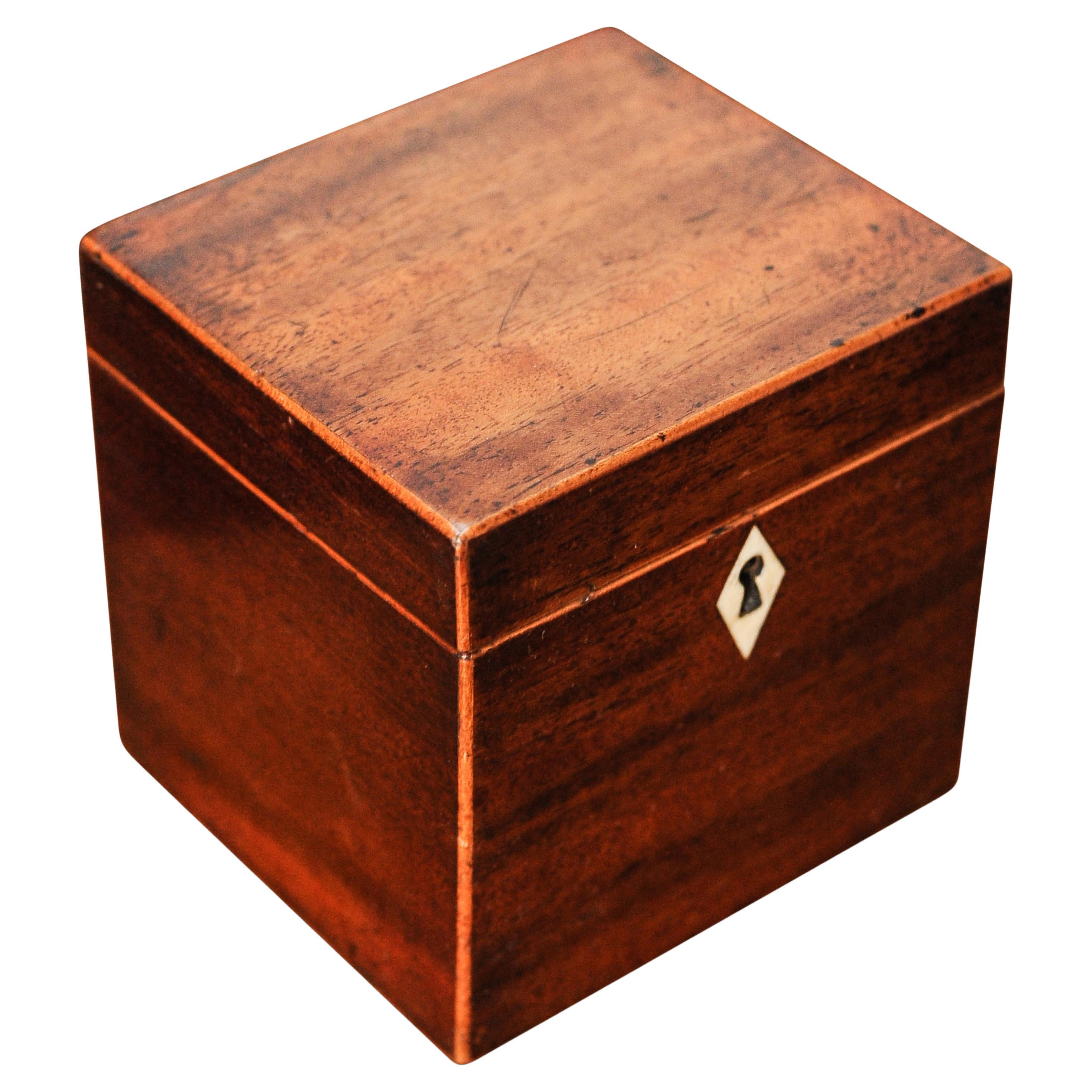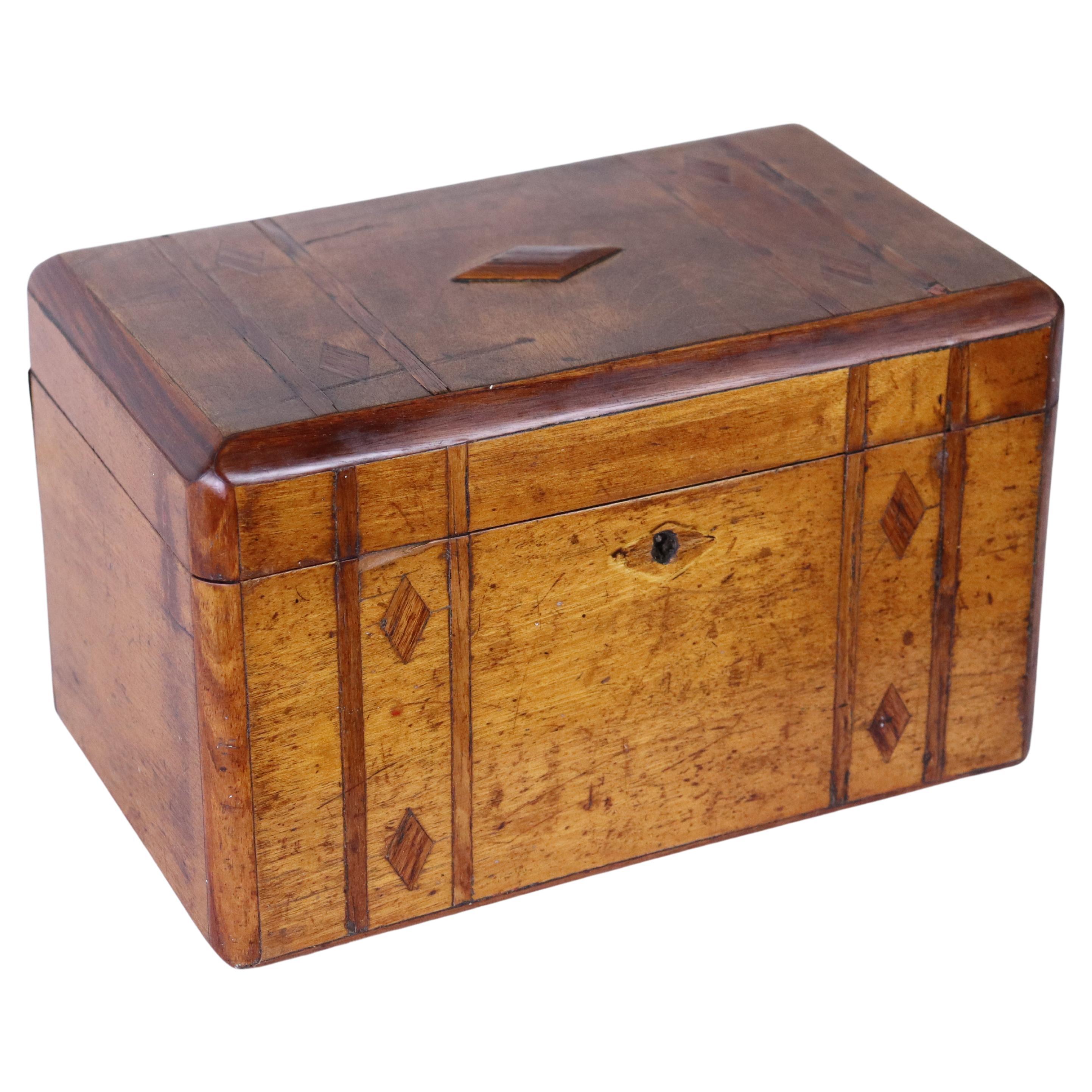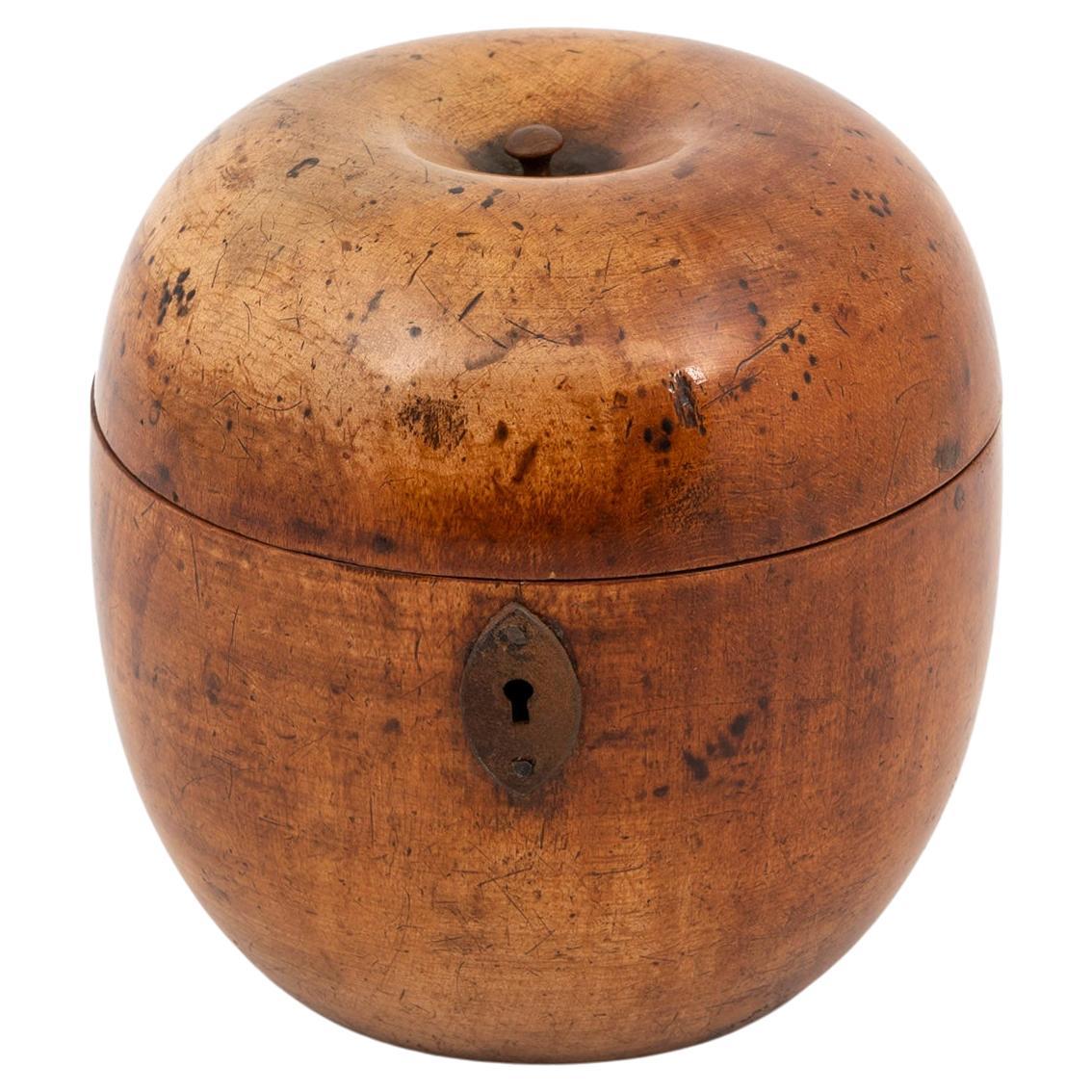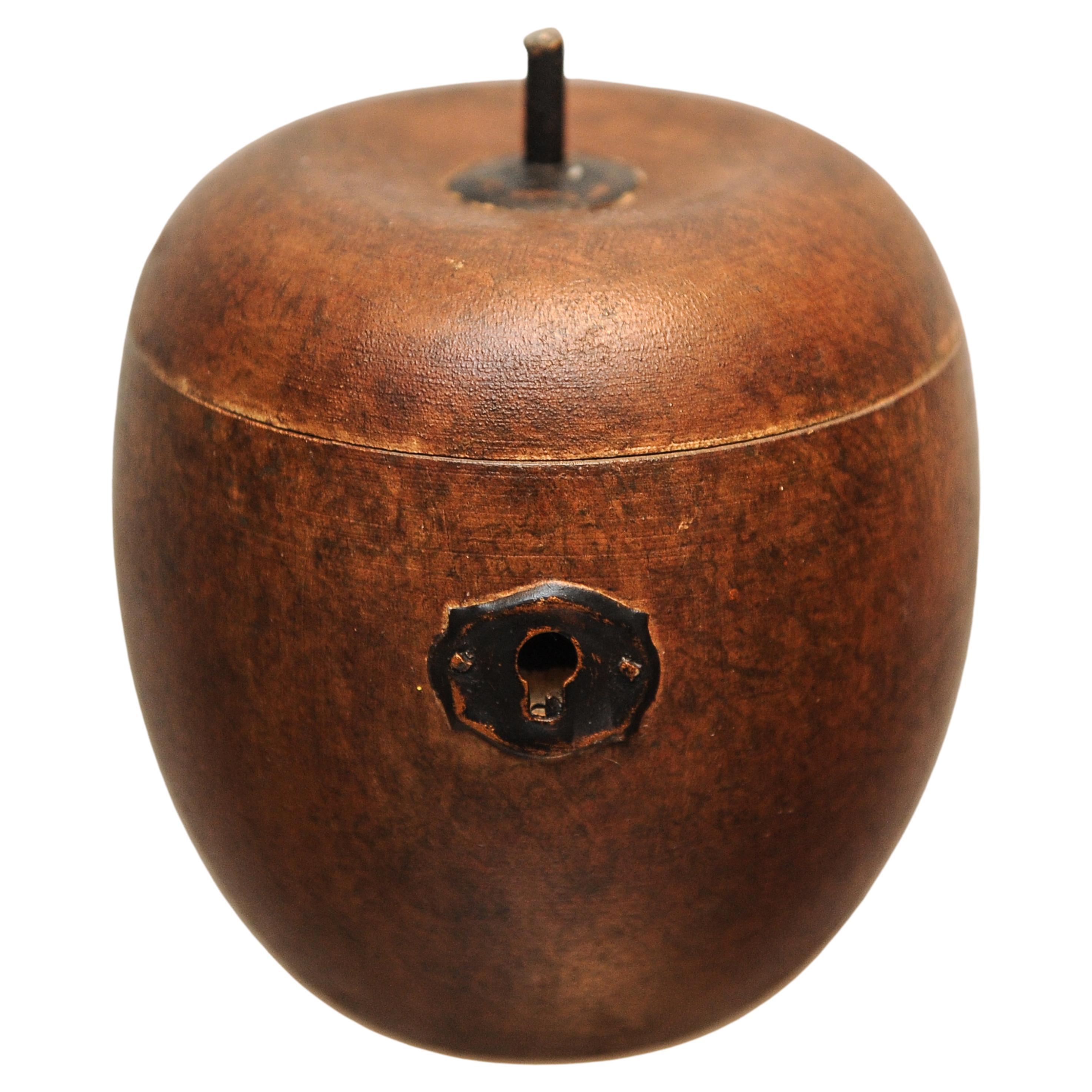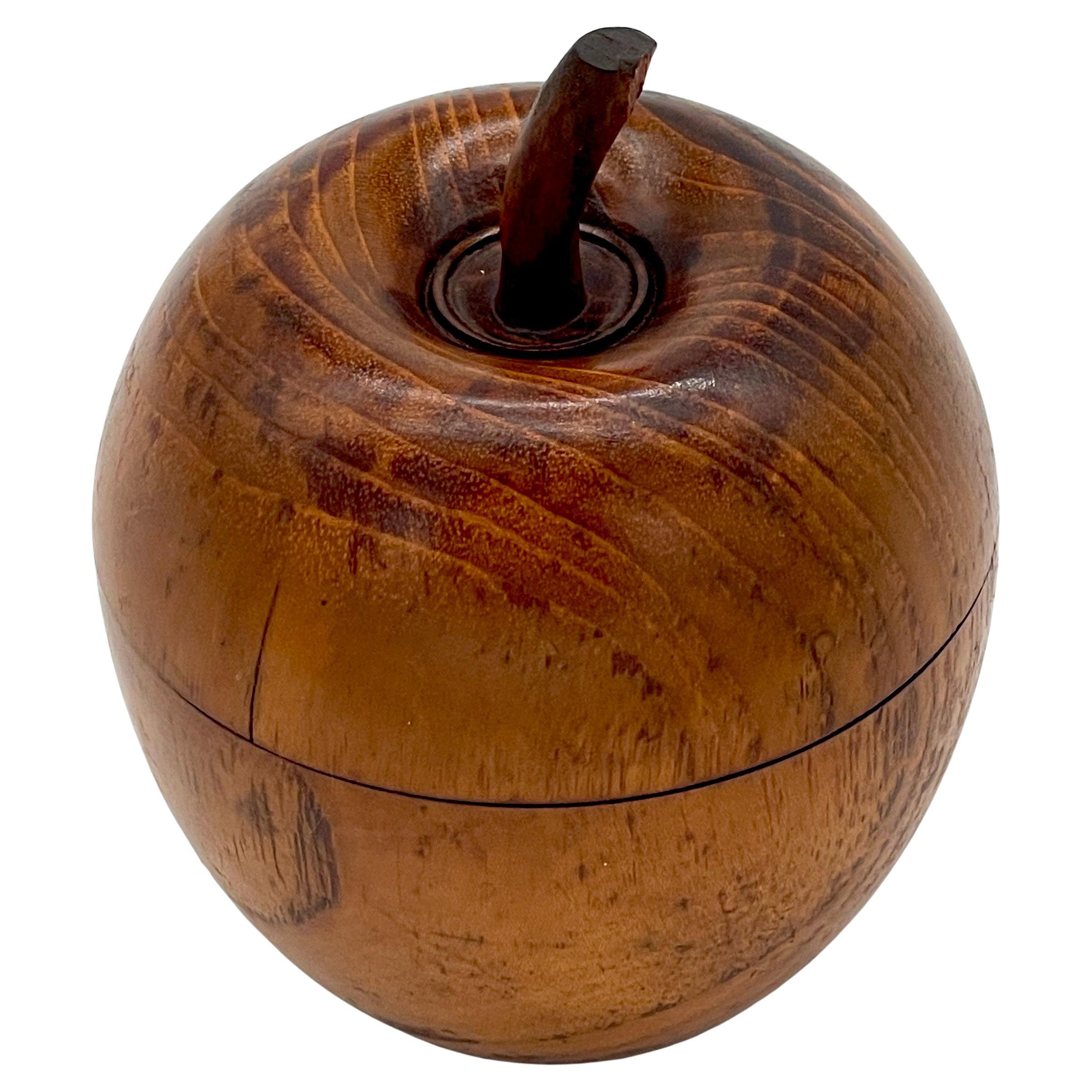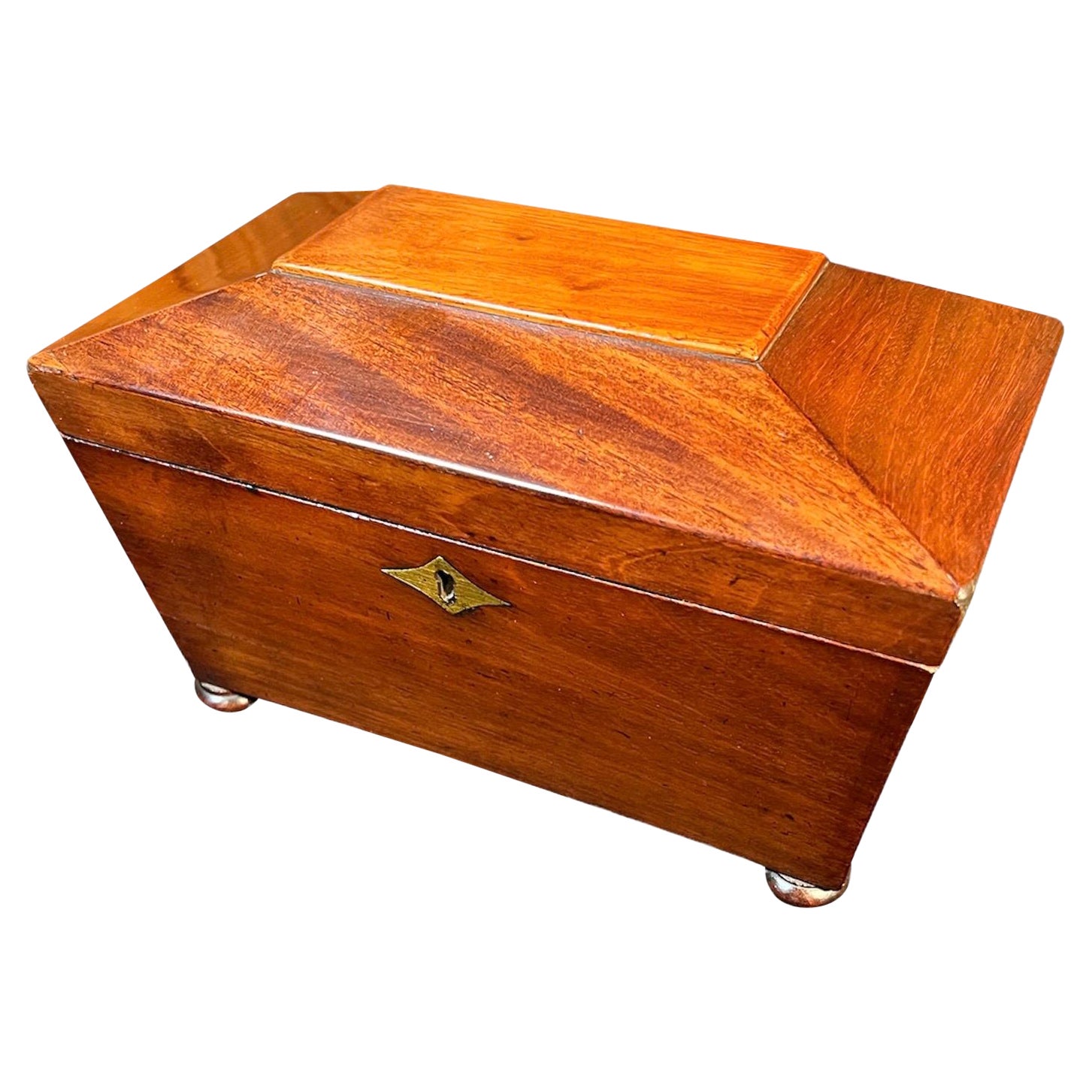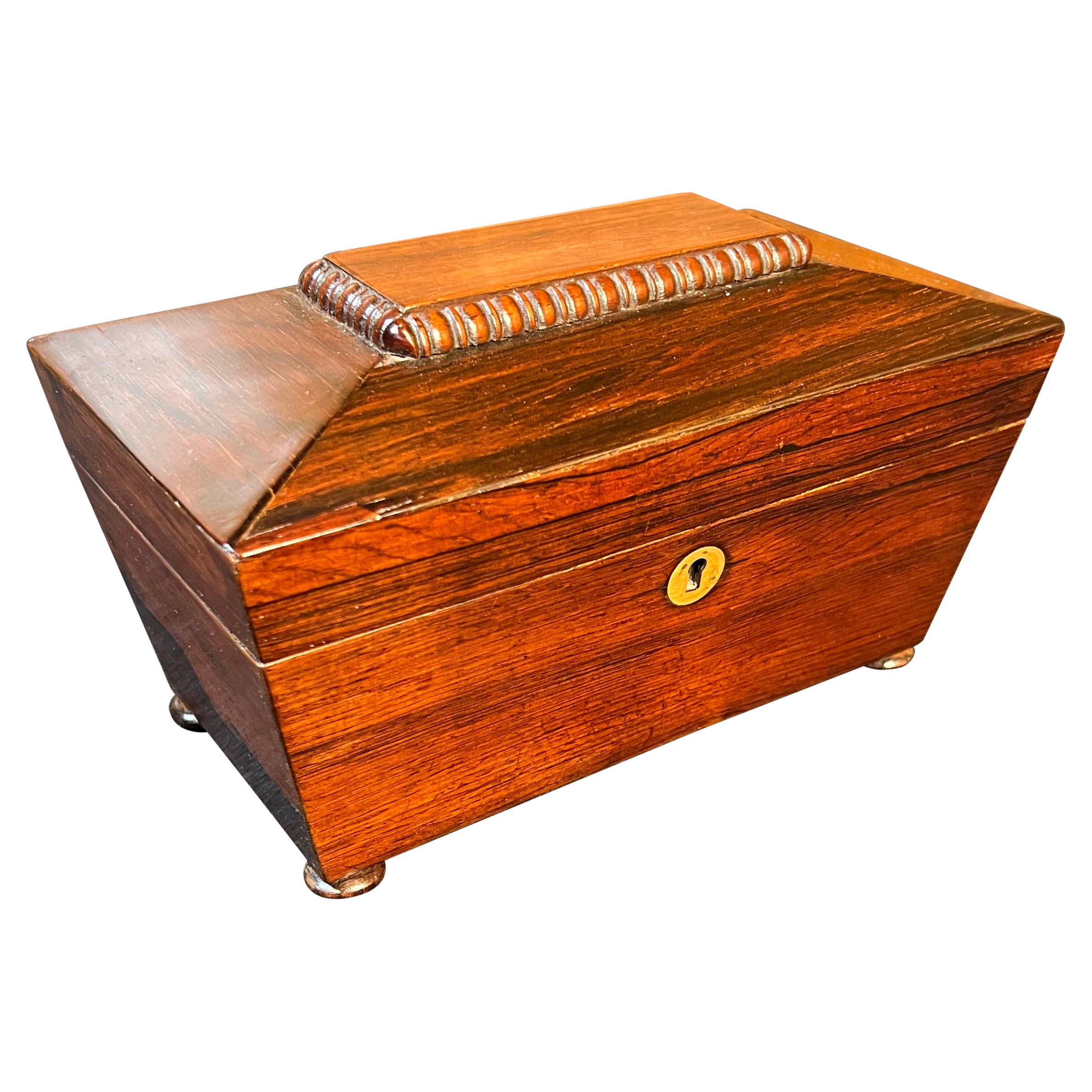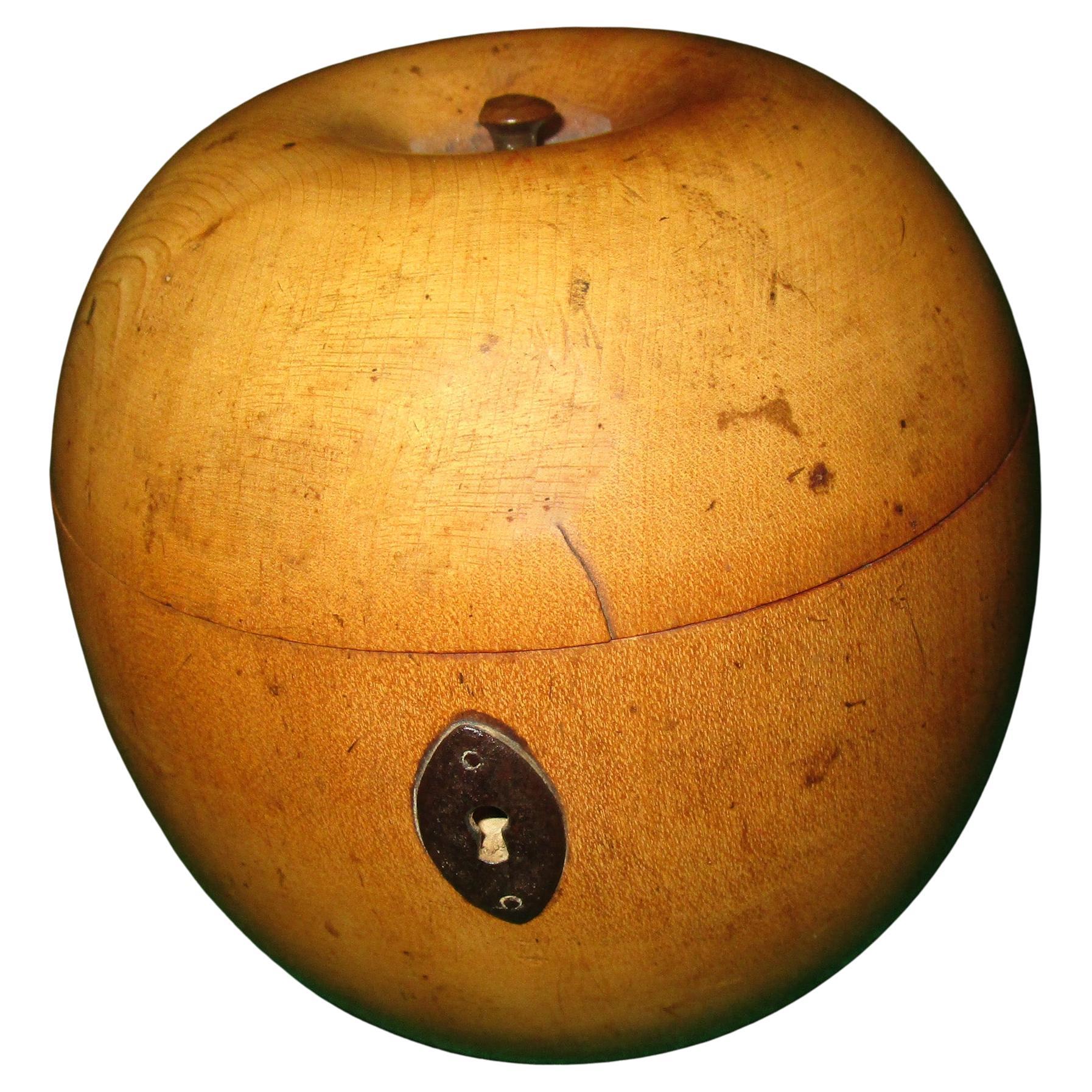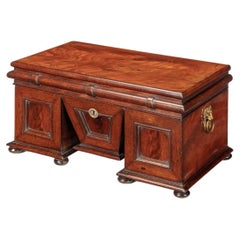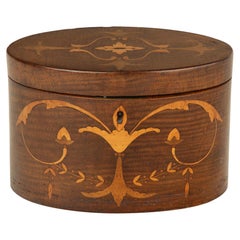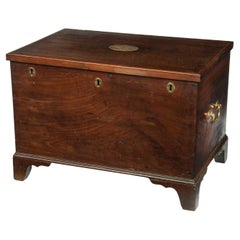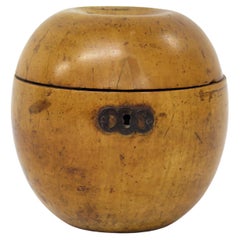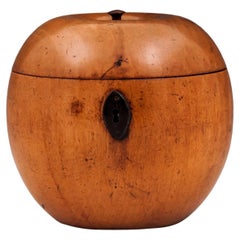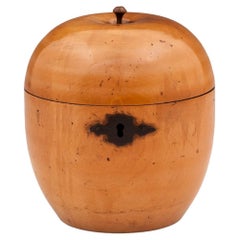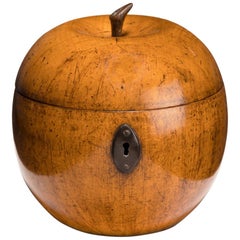
Fruitwood Tea Caddy in the Form of an Apple
View Similar Items
Want more images or videos?
Request additional images or videos from the seller
1 of 6
Fruitwood Tea Caddy in the Form of an Apple
About the Item
About the Seller
5.0
Recognized Seller
These prestigious sellers are industry leaders and represent the highest echelon for item quality and design.
Established in 1982
1stDibs seller since 2013
109 sales on 1stDibs
Typical response time: 1 hour
Associations
LAPADA - The Association of Arts & Antiques Dealers
More From This SellerView All
- William IV Mahogany Tea Caddy in the Form of a Pedestal SideboardLocated in Lymington, HampshireAn unusual William IV mahogany tea caddy in the form of a pedestal sideboard with a hinged lid opening to reveal a central well for a mixing bowl (now missing) flanked by two removab...Category
Antique 1830s English William IV Tea Caddies
MaterialsMahogany
- A harewood marquetry tea caddy with Royal ProvenanceLocated in Lymington, HampshireA harewood marquetry tea caddy with Royal Provenance, of oval form with a hinged lid opening to reveal two zinc lined compartments, decorated in fruitwood and boxwood marquetry with ...Category
Antique 1790s English Tea Caddies
MaterialsHardwood
- A mahogany strong box made for the Ovenden Female Society, Instituted May 1809Located in Lymington, HampshireA mahogany strong box made for the Ovenden Female Society, Instituted May 1809, of deep rectangular form with a hinged lid, three brass locks, brass carrying handles and an applied b...Category
Antique Early 1800s English Decorative Boxes
MaterialsMahogany
- Gold and Agate Snuff Box Belonging to Anne, First Duchess of BuccleuchLocated in Lymington, HampshireThis oval gold snuff box is inscribed with a crest of ‘a stag trippant’ within mantling of upright ostrich plumes tied with a bow, all below a ducal coronet and above a cypher of the entwined initials ‘B.A.B.’ for Anne of Buccleuch. English, circa 1670. Provenance: Anne, 1st Duchess of Buccleuch Anne Scott, 1st Duchess of Buccleuch (1651-1732) was a wealthy Scottish peeress. After her father died when she was a few months old, and her sisters by the time she was 10, she inherited the family’s titles. She was married, at 12 years old, to James, 1st Duke of Monmouth, the eldest illegitimate son of Charles II, then 14. Following the king’s death in February 1685, James spearheaded an anti-Catholic revolt to depose the new king, James II, and claim the throne from his uncle. The brief Monmouth Rebellion ended in defeat and James, by then Duke of Monmouth and Buccleuch, was executed for treason. The Duchess had six children by Monmouth, and a further three by her second husband, Charles, 3rd Baron Cornwallis, whom she married in 1688. She died in 1732 and was succeeded by her grandson, Francis, Earl of Dalkeith. The style of chasing used on this box is very reminiscent of a signed piece in the Gilbert...Category
Antique 1670s English Snuff Boxes and Tobacco Boxes
MaterialsAgate, Gold
- A small Showa period cloisonné box with a single branch of blossomLocated in Lymington, HampshireA small Showa period cloisonné box with a single branch of blossom, worked in wire and coloured enamels with a blossoming plum branch, reserved against a pale-blue ground, with silve...Category
20th Century Japanese Showa Decorative Boxes
MaterialsCeramic
- 19th Century Mahogany Inkwell in the Form of a CapstanLocated in Lymington, Hampshire19th century model of a ship's capstan in mahogany with a hinged lid enclosing an inkwell.Category
Antique 1880s English Inkwells
You May Also Like
- An English Fruitwood Apple Form Tea CaddyLocated in Dallas, TXA fine novelty fruitwood tea caddy in the form of an apple. lathe turned and with a soft honey patina, restoration to the lid at the hinge. England...Category
Antique Early 19th Century English George III Tea Caddies
MaterialsFruitwood
- Georgian Novelty Apple Tea CaddyLocated in Northampton, GBShaped as an Apple From our Tea Caddy collection, we are delighted to offer this superb Georgian Apple Treen Tea Caddy. The Tea Caddy carved from Treen as a novelty Apple with a button stalk, shaped body and shaped cut steel escutcheon. When opened the Caddy reveals traces of the original tin foil lining for housing Tea leaves. The Apple Fruit Tea Caddy...Category
Antique Early 1800s European Georgian Tea Caddies
MaterialsWood
- Georgian Apple Treen Tea CaddyLocated in Northampton, GBShaped as an Apple From our Tea Caddy collection, we are delighted to offer this superb Georgian Apple Treen Tea Caddy. The Tea Caddy carved from Treen as a novelty Apple with a but...Category
Antique Early 19th Century George III Tea Caddies
MaterialsSteel
- A Handmade Victorian Fruitwood & Inlay Tea CaddyLocated in High Wycombe, GBA Handmade Victorian Fruitwood & Inlay Tea Caddy With Zinc Lining A tea caddy is a box, jar, canister, or other receptacle used to store tea. When first introduced to Europe from Asia, tea was extremely expensive, and kept under lock and key. The containers used were often expensive and decorative, to fit in with the rest of a drawing-room or other reception room. Hot water was carried up from the kitchen, and the tea made...Category
Antique 19th Century British Victorian Tea Caddies
MaterialsZinc
- Country Fruitwood Tea Caddy, Mahogany InlayLocated in Port Chester, NYA sweet fruitwood tea caddy or decorative box, inlayed with light mahogany. No key.Category
Antique Mid-19th Century English Tea Caddies
MaterialsFruitwood, Mahogany
- Georgian Novelty Apple Fruit Tea CaddyLocated in Northampton, GBShaped as an Apple From our Tea Caddy collection, we are delighted to offer this superb Georgian Apple Treen Tea Caddy. The Tea Caddy carved from Sycamore as a novelty Apple with a button stalk, shaped body and shaped cut steel escutcheon. When opened the Caddy reveals traces of the original tin foil lining for housing Tea leaves. The Apple Fruit Tea Caddy...Category
Antique Early 1800s English George III Tea Caddies
MaterialsSycamore
